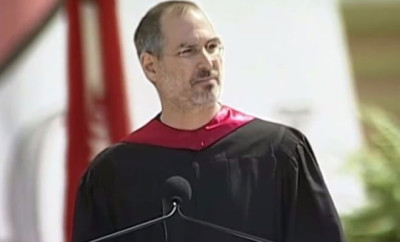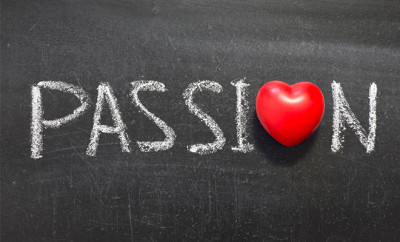
Exploding Self Actualisation Myths
Are you bored and feeling “ho-hum” with all the hype in business and dinner conversation about goal achievement and coaching? Do you question the depth of “coaching” and wonder if it is nothing but a motivation injection and a whole lot of hype? Do you smirk and think, “Aweee, I don’t need coaching and certainly don’t need coaching skills – that is for positive thinkers and motivational types!”
This is a common but quite erroneous perception about coaching. In a recent survey of people who never experienced coaching. The highest scoring interpretation of coaching was “it is about Positive Thinking and Motivation to Achieve Goals.”
Myth number 1: Coaching is just about positive thinking!
The reality is, most people tend to fall at either end of a polarity between overly optimistic (positive) or pessimistic (negative). Each end of the polarity has strengths and benefits for its thinking and responding; yet being stuck at either end of the polarity as your modus operandi can cause significant impact to business results and your personal life.
If you are overly optimistic,
»you will have difficulty forecasting revenue predictions and targets, you will over-promise and under-deliver (or stress yourself out trying to). You will avoid dealing with the reality of your business issues or finances. You will make hiring and training errors by overlooking employee characteristics and weaknesses, and you will often be seen as being insensitive to the emotions of others.
If you are an overly pessimistic,
»you will mostly see faults, weaknesses, and vulnerabilities. You will appear cynical and argumentative. You won’t see business or personal opportunities if they came and hit you in the face, and you will also be seen as insensitive to the emotions of others.
If you oscillate between these two perspectives / states,
»you could feel, and be seen by others, as a manic depressive, swinging between states of possibility and optimism only to crash into disappointment, limitation, and feeling pessimistic. While you may not have a clinical condition, if you are leading others (at work or as a parent) you could have a lot of difficulty creating safety, consistency, credibility, and reliability within yourself, your team, relationships, and family.
Most often the role of coach is to help bring you into reality. And this is smack bang in the middle of optimism and pessimism. Reality is also more of a both-and perspective regarding optimism and pessimism rather than an either-or. Can you imagine having the ability to look at your work, business, and your personal life and see multiple perspectives, across the continuum between positive (optimistic) and negative (pessimistic)?
With all of this in mind, imagine having the ability to see reality for what it is and to make strategic decisions in your life and work based on reality? Imagine being able to plan and to deliver on your forecasts, being more consistent in your behaviour and expectations, and to feel a sense of equanimity in your work and life.
As we can see, if positive thinking is the interference, coaching will not be about “positive thinking.” Imagine being trained in the same skills a professional coach uses for expertly helping a client develop reality thinking, and being able to facilitate yourself, your team or managers to have this ability? Imagine using these skills with your children and family members? What difference would reality thinking make to those you work with and live with?
Myth Number 2: Coaching is only for goal achievers!
While it is true that Coaching works towards specific outcomes, there are several forms of Coaching and goal attainment is only one of them.
Whether you like it or not, you are consistently and incrementally developing. Your body is in constant change (not always for the better!), your ideas mature, your skills expand, and you continue to evolve. It is a naturally occurring process and also happens without necessarily striving to attain a goal.
During this process you most likely will stumble across previously unrecognised or undiscovered skills, talents, and abilities. Your life experiences from traveling, starting new jobs, relationship challenges, traumatic events, luck, and other experiences, provide you with a perfect crucible for you to grow and develop such raw and unshaped abilities.
Imagine your life if you never explored those talents and abilities? Imagine ignoring them, hiding from them, and pretending you don’t have them? Imagine never tapping into your innate love of people, your quirky appreciation for mathematics, your desire to revolutionise government, your love of art, your personal resilience and perception, your calling to motherhood or fatherhood, etc, etc.
As the great Abraham Maslow said,
“If you deliberately plan to be less than you are capable of being, then I warn you that you will be deeply unhappy for the rest of your life. You will be evading your own capacities, your own possibilities.”
Consider this. Most of you will invest time researching and learning how to manage your personal finances, health and fitness, leadership and business skills. Often you will seek a mentor in these areas or work with an expert consultant to advise you in taxation, sales, marketing etc. You may discuss these areas with a friend or somebody who you trust and respect.
If your personal fulfillment, your personal satisfaction, and your contentment are linked to identifying, cultivating, and developing your personal talents, wouldn’t you seek expert support to develop your potential? At the very core, this is what Coaching is, developing your potentials.
Imagine having now an expert level of skill as a leader or manager to recognise, nurture, and develop the skills and talents of the people in your team? What difference would this make to productivity, culture, retention, work place happiness and success? Imagine having these skills to support the children you love as a parent, grandparent, uncle, or aunt? Imagine being able to support your husband or wife and friends to nurture their talents and abilities…
Myth Number 3 – The Coach is a Guru
While it is true that you as a Coach need to have expertise in facilitating others learning, change, and development, the Coach’s number one asset is not your knowledge or expertise of business, marketing, health, leadership, or whatever you coach another to develop or achieve. It is, in fact, your non-judgmental awareness and your advanced ability to hold seeming opposing concepts and ideas simultaneously in mind, thereby inviting and cultivating the untapped inner wisdom, abilities, and knowledge of the person you are supporting through coaching.
Try it on. What does it feel like when somebody constantly speaks for you? Cuts you off and speaks over the top of you? Takes one of your first musing or thoughts and runs with it claiming as their own original idea? Tells you that your ideas are poor and that this is the only way it can be done? Starts something and if you don’t progress as quickly as they can do it, takes over and does it for you? Ignores you and talks about the issues as if you have nothing to contribute to the discussion? Tells you that with your level of experience you could not possibly know the answer? Starts preaching and teaching you about the way it should be done by the “rule” book for this given situation?
As soon as you are dangerously seduced to identify with being the Guru, you can naturally fall into the trap of needing to have all the answers and proving to others that you truly do! If you have taken this identity on, even unconsciously, you will not be looking at the potential of the people you are coaching, working with, leading or managing; your focus will be entirely on finding opportunities to show others that you are indeed worthy of your Guru Status. You will then need to be “perfect.”
Imagine being able to be completely present to another person, and through this fully-present-state, cultivate an environment for curious inquiry, find and awaken another persons creativity, solutions, talents, and opportunities. Imagine how much time you could save as a leader if you could actually maintain this style of leadership when you get under pressure and time constrained? Imagine creating a work place and family culture where you genuinely think of each person as completely whole and having all the answers within them? What difference could this make to your relationships and personal contribution? What could it open up for you in your leadership and personal development?
Self Actualisation is an exhilarating journey to participate within. Ultimately Coaching is one of the most powerful methods by which we can develop and actualise our personal talents and potentials, giving incredible leverage to genuinely empower and support those we lead and love.
Who are you leading and loving? How are you empowering and supporting their fullest development? What difference will you make today?







